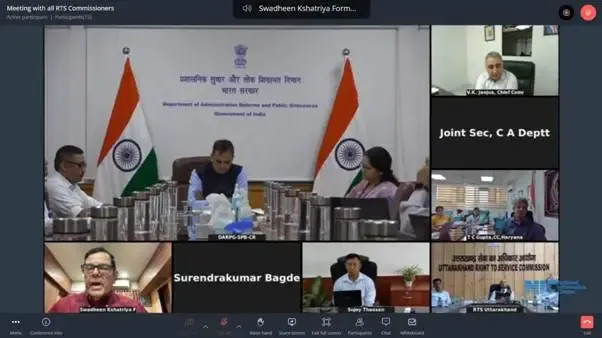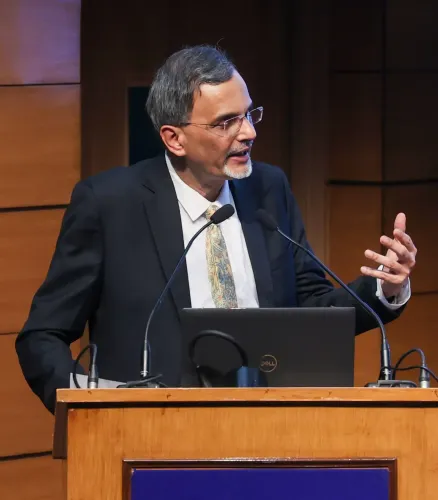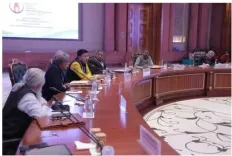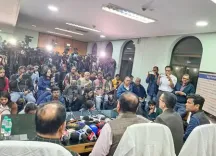Have e-Services in India Surpassed 22,000?

Synopsis
Key Takeaways
- India has surpassed 22,000 e-Services under NeSDA.
- Collaboration with RTS Commissioners aims to enhance service delivery.
- Focus areas include land, labour, finance, and environment.
- API linkage for real-time grievance data sharing is in progress.
- AAKLAN benchmarking tool aids in evaluating e-Services.
New Delhi, Aug 9 (NationPress) India boasts over 22,000 e-Services within the framework of the National e-Governance Service Delivery Assessment (NeSDA), as reported by the Ministry of Personnel, Public Grievances and Pensions on Saturday.
To further enhance the public service delivery framework under NeSDA, the Department of Administrative Reforms and Public Grievances (DARPG) convened a meeting with the Right to Service (RTS) Commissioners.
Representatives from eight RTS Commissions, including Chandigarh, Punjab, Uttarakhand, Meghalaya, Assam, West Bengal, Haryana, and Maharashtra, participated in this session, which was led by V. Srinivas, Secretary of DARPG.
Srinivas emphasized the significant rise in e-Services across states hosting RTS Commissions, paving the way for a stronger partnership aimed at improving e-Service Delivery through the NeSDA initiatives.
He noted, “The API linkage of the CPGRAMS portal with the RTS Commissions' websites is nearing completion, enabling real-time data sharing of state-specific service grievances for effective oversight by State Grievance Officers.”
Additionally, the RTS Commissioners will collaborate with DARPG to enhance e-Services in four vital sectors: land, labour, finance, and environment, under the Right to Services Act, promoting both Ease of Living and Ease of Doing Business, in line with deregulation objectives as per the ministry's statement.
The assessment of e-Services is facilitated by the AAKLAN benchmarking tool developed by the National Information Centre (NIC), focusing on various parameters to improve service accessibility.
The best practices from RTS Commissions are compiled in the monthly NeSDA Way Forward reports for implementation, and a study examining the impact of RTS Commissions on public service delivery and grievance resolution is being conducted by the NCGG, according to the ministry's announcement.
Surendrakumar Bagde, Director General (DG) of the National Centre for Good Governance (NCGG), also attended the meeting.
He provided insights into the NCGG study regarding the benefits of RTS Acts across various states and outlined the study's objectives for the next nine months.
RTS Commissioners were encouraged to submit proposals under the State Collaboration Initiative (SCI) of DARPG, aimed at expanding digital services to enhance service delivery and address grievances.
This initiative resonates with the government's broader vision for digital transformation and efficient public service delivery, demonstrating ongoing efforts to empower citizens and improve governance outcomes.









